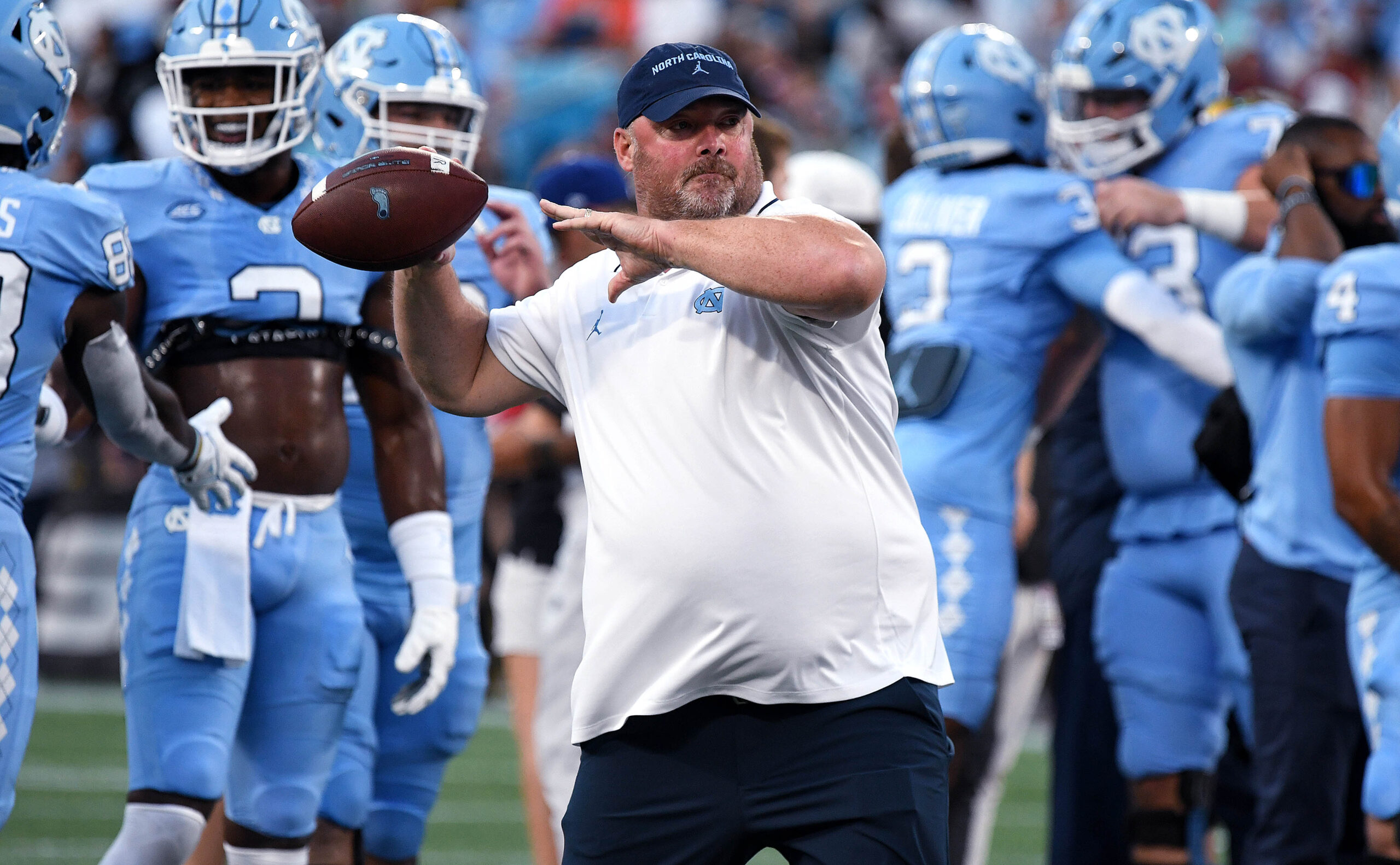HOUSTON – As the North Carolina Tar Heels football team prepares to face off against the University of Connecticut in today’s Fenway bowl, the team needs look no further than its interim head coach for an example of perseverance, grit, and determination.
Those qualities served Freddie Kitchens well when he was the starting quarterback at the University of Alabama – leading the Crimson Tide to a win over Ohio State in the 1995 Citrus Bowl and a win over Michigan in the 1997 Outback Bowl. They served him well as he ascended through the coaching ranks – eventually becoming the head coach of the Cleveland Browns. But nowhere else did those qualities serve him more than when he faced his own mortality during his tenure as the Arizona Cardinals’ quarterbacks coach on June 4, 2013.
“Everything started as normal,” said Kitchens. “I’m on the field and I had always raced the quarterbacks across the field, so I did that that day and I heard a pop – and it sounded like it was right outside my ear, so I didn’t know what had happened. My vision started going white, and I couldn’t see Carson (Palmer)’s number five feet from me. I couldn’t tell that he was wearing number three. My vision came back and my back started hurting, my hamstring, all the way down to my foot. And that happened over the course of about 15 to 20 minutes, and I was limping. So I told the trainer I’d meet him inside. I thought I was dehydrated or something. He got ready to call the ambulance, thinking I was having a heart issue. He checked my blood pressure expecting it to be high and it was 80 over 40. They couldn’t figure what was going on, so they sent me to the emergency room.”
After an extended series of tests and an MRI, the doctors realized that Kitchens’ aorta had dissected, and blood was running through the walls of his heart. According to Kitchens, he had an underlying condition – Loeys-Dietz syndrome, leading to an aneurysm that had grown to nearly nine centimeters.
“It had split, if you can imagine, like a water hose,” said Kitchens.
He was airlifted to the Arizona Heart Institute, and during his 13-minute flight his thoughts were not with his own health – or even with football, but rather, capturing the moment for his two daughters, Bennett and Camden, who had long wanted to go on a helicopter ride themselves.
“We had always talked about going on a helicopter,” said Kitchens, “and I had a perfect opportunity to take some pictures.”
After a successful surgery, Kitchens was sent home just a week later, and on July 25, he was back on the field when the Cardinals opened training camp.
He remained with the Cardinals through the 2017 season before joining the Cleveland Browns as associate head coach in 2018, and in 2019, he took over as the Browns’ head coach. His tenure as head coach lasted one season, and after a two-year stint on the staff of the New York Giants, Kitchens returned to the college game with South Carolina in 2022. He moved on to Chapel Hill in 2023 and after the 2024 regular season, he was named the Tar Heels’ interim head coach for today’s game.
Kitchens’ close call has led him to pay closer attention to his health.
“As you go through coaching, your health takes a back seat to it a lot of times, and you can’t do that,” said Kitchens. “You can’t coach unless you take care of yourself. Lord knows I have enough bad habits… you try to keep your weight down. You try to exercise. You try to do things that keep your heart in tip-top shape. Now I keep track it on a year to year basis. They keep me monitored – the size of my aorta. You really have to stay on top of it with the doctors and do what you can off the field to take care of yourself.”
But like any true coach, Kitchens points to one thing that he feels does the most for his health. “I feel a lot better with wins than I do losses.”
His tenure as the Tar Heels’ head coach will last one game – legendary former NFL coach Bill Belichick will take over the program moving forward – but Kitchens has reason to believe he will be feeling good after today’s game.
“I think these guys have done a great job of controlling what they can control on a day-to-day basis, with how they prepare and how they practice and things like that,” said Kitchens. “These guys are resilient and they’ve been able to do that.”
###

